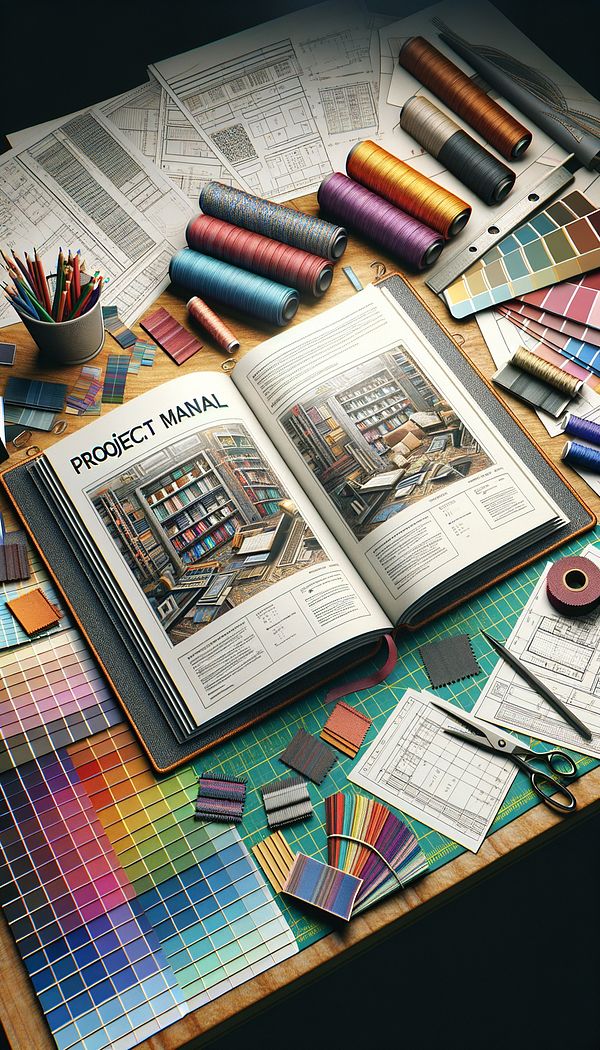What is a Project Manual?
A document that outlines the scope, standards, guidelines, and specifications of a design project.
Description
In the context of interior design, a Project Manual serves as a comprehensive guide for both the design team and the client, ensuring that all parties have a clear understanding of the project goals, parameters, and expectations. This manual typically encompasses a wide range of information including project scope, design standards, material specifications, and contractual obligations. It acts as a centralized reference document that facilitates communication, clarity, and consistency throughout the duration of the project.
By thoroughly detailing the project's objectives, materials, and procedures, the Project Manual helps in preventing misunderstandings and discrepancies between the design intent and the actual implementation. It can include details such as color schemes, furniture layouts, flooring materials, and lighting plans, among other components. Additionally, the manual often contains important administrative documents like contracts, schedules, and budgetary information.
A well-organized Project Manual is instrumental in maintaining the project's direction and focus, aiding in decision-making processes, and ensuring that the design is executed according to the specified standards. By serving as both a guide and a record, it plays a pivotal role in the successful completion of interior design projects.
Usage
When embarking on a new office redesign, the interior design team drafts a Project Manual to outline the design vision, including the selection of ergonomic furniture, sustainable materials, and modern lighting fixtures. This manual is then shared with the client and the construction team to ensure everyone is aligned with the project's direction and standards. Through regular updates to the Project Manual, any changes in design or materials are communicated effectively, keeping the project on track.
FAQs
-
Who creates the Project Manual?
The Project Manual is typically created by the interior design team in collaboration with the client, ensuring that all project goals and preferences are accurately captured.
-
How does a Project Manual differ from a mood board?
While a mood board visually communicates the design inspiration and aesthetic direction, a Project Manual provides a detailed written description of the project's scope, standards, guidelines, and specifications, including technical details and contractual obligations.
-
Is the Project Manual shared with contractors and subcontractors?
Yes, the Project Manual is shared with contractors, subcontractors, and any other parties involved in the implementation of the design to ensure everyone is informed of the project's specifications and expectations.
-
Can the Project Manual be updated during the project?
Absolutely. The Project Manual is a living document that can be updated and revised as needed to reflect changes in design decisions, materials, or project scope.
Practical Application
When creating a Project Manual, start by defining the project's scope clearly, including all desired outcomes and specifications. Collaborate closely with the client to ensure their vision is accurately represented, and involve key team members in the manual's development to cover all technical and design aspects. Regularly review and update the manual as the project evolves, communicating any changes to all stakeholders to maintain alignment.
-
Space Planning & Layout134 articles
-
Decorating Principles & Elements330 articles
-
Materials & Textiles360 articles
-
Construction & Building86 articles
-
Channel QuiltChannel quilt is a quilting technique where fabric is sewn into elongated, parallel channels, creating a distinct linear pattern.
-
Finger PlatesFinger plates are protective plates mounted on doors to prevent wear and tear from frequent handling.
-
ContemporaryContemporary refers to what is current and popular in interior design at any given time.
-
French RegenceFrench Regence is a decorative style of interior design developed in France between 1715 and 1723.
-
Reclaimed WoodReclaimed wood is recycled wood that has been repurposed for new uses.
